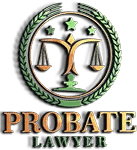- 855-99LEGAL
- Contact Us
- Login
James P. Spica is an Estate Planning & Probate attorney at the Chalgian & Tripp Law Offices PLLC in Southfield, Michigan. Mr. Spica?s private client practice focuses on estate planning for high net worth individuals. In addition, much of his practice is dedicated to representing and advising other professionals and institutions, in Michigan and elsewhere, with respect to complex trust planning and litigation.
Mr. Spica is also recognized for his accomplishments in developing trust law, nationally as a Uniform Law Commissioner (assigned to drafting committees for the Uniform Directed Trust Act, the Uniform Fiduciary Income and Principal Act, and the ULC?s Conflict of Laws in Trusts and Estates project) and in Michigan as the principal author of the State?s rule against perpetuities reform and its divided trusteeships and trust decanting statutes. He is the author of numerous articles for national legal publications, a former American Bar Association Advisor to the Uniform Law Commission, a Life Fellow of the American Bar Foundation, a Fellow of the American College of Trust and Estate Counsel, Secretary of the Council of the Probate and Estate Planning Section of the State Bar of Michigan, and a Member of the Probate and Estate Planning Advisory Board of the Michigan Institute of Continuing Legal Education.ÿ
Recognized for his high legal capability and ethical standards, Martindale-Hubbell awarded Mr. Spica the highest available peer review rating of AV Preeminent. He is listed in ?The Best Lawyers in America? (?2019 Detroit Lawyer of the Year ? Litigation ? Trusts and Estates?), ?Top Ranked? in the Chambers High Net Worth (HNW) Guide, ÿand on the ?Top Lawyers? list of DBusiness Magazine. He is also a charter member of Leading Lawyers.
After receiving his bachelor?s degree from the University of Michigan, Mr. Spica earned his J.D. from the University of Detroit Mercy School of Law. He also holds an LL.M. (in Taxation) from New York University School of Law. He clerked for Hon. Richard C. Wilbur on the United States Tax Court (1985) and taught as an Assistant/Associate Professor of Law at the University of Detroit Mercy (1989?2000, tenured 1996). He is qualified to appear before all Michigan state courts.
ÿ
